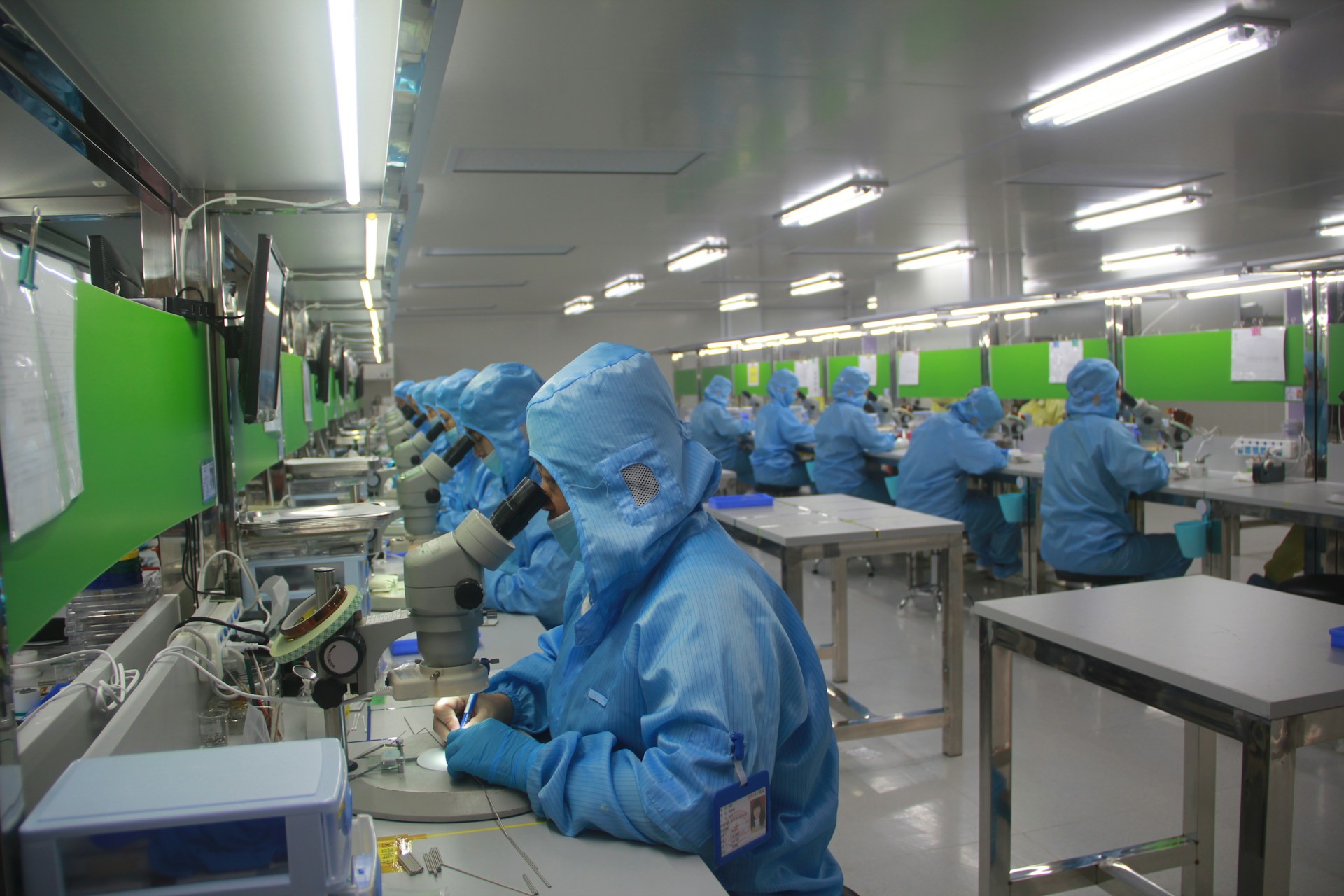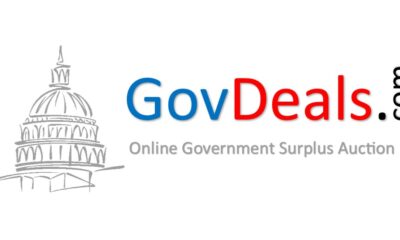Health
The Essential Guide to Pharmaceutical Validations in Drug Manufacturing

Pharmaceutical validations are the cornerstone of safe and effective drug manufacturing. They play a vital role in protecting public health by ensuring consistent quality and preventing potential issues.
What Is Pharmaceutical Validation?
Pharmaceutical validation is an analytic doctrine essential for standardized production within the drug manufacturing industry. It dictates that when operated within specified parameters, a process can consistently produce a regulated product that adheres to quality attributes. Through this thorough validation, labs and manufacturing plants assure the safety and efficacy of their pharmaceutical products. A systematic and rigorous approach toward pharmaceutical validations underlines a commitment to quality, patient safety, and regulatory adherence. This guide delves into the facets of validation, demystifying the technicalities while highlighting their significance in the practical field.
Types of Pharmaceutical Validation
Process Validation
Process validation is the cornerstone of a product’s journey from conception to availability. Ensuring that each batch of medicine is of the highest quality and that processes are validated is critical because the repercussions of inconsistency could spell health hazards and severe regulatory setbacks. This validation type assesses performance over time, documenting evidence that adequate measures are taken to keep every batch of drugs within predefined quality margins.
Cleaning Validation
Cleaning validation is as integral as any other facet of the production cycle. It verifies that the methods of cleaning equipment eradicate residues to predetermined levels, thereby avoiding contamination of pharmaceuticals. This validation is specific and important as the complexities of pharmaceutical formulations demand stringent hygiene and control over cross-contamination.
Computer System Validation
The modern drug industry is hinged on the accuracy of its digital systems. Computer system validation ensures software and hardware across pharmaceutical operations perform their required functions consistently and reliably. This element of validation is increasingly important in a world that relies on digital operations to maintain standards of pharmaceutical safety.
Equipment Validation
Every piece of apparatus used in the manufacturing of drugs, from the minutest pipette to large-scale fermenters, must prove its purpose and function. Equipment validation attests to the apparatus’s capability to deliver consistently accurate measurements, mixing, and control over the environmental conditions impacting drug production.
Understanding the Validation Lifecycle
A comprehensive validation lifecycle encapsulates multiple facets of preparation, operationalization, ongoing checks, and consistent performance reviews. Through a series of established protocols, the goal is to prove that every process within drug manufacturing complies with precise design qualifications and produces a final product that suits its intended purpose. This approach facilitates continuous improvement and consistent production of high-quality products.
Regulatory Requirements and Compliance
Compliance with regulatory requirements such as those by the FDA and EMA is not merely an optional checkpoint but a stringent necessity in the pharmaceutical industry. Regulations set forth the legal framework under which validations must operate, determining the required evidence and procedural documentation for demonstrating consistency and repeatability according to good manufacturing practices. These validations are subject to initial review and continual regulatory inspections to ensure ongoing compliance.
The Role of Quality Assurance in Validation
Quality assurance (QA) is the sentinel of the validation process, ensuring that each aspect of pharmaceutical production, including the validation exercises, operates within the guardrails of established quality standards. The QA team typically conducts audits, reviews documentation, and monitors all facets of the drug production process to safeguard product integrity and operational efficiency. It ensures a confluence of compliance and quality throughout the product development lifecycle.
Best Practices in Documenting Validation Processes
Documentation is as vital as the validation process itself. It is a tangible compilation of the compliance and integrity of the manufacturing narrative. Best practices in documentation call for meticulous records of protocols, performance data, and quality tests. It should also include any deviations or non-conformances, their investigations, and resolutions to weave a comprehensive storyline of due diligence and compliance should scrutinizing authorities inquire.
Challenges in Pharmaceutical Validation
Challenges in pharmaceutical validation span the spectrum from adjusting to novel regulatory benchmarks to combatting the logistical hurdles of integrating new technologies. As the drug manufacturing landscape evolves, so do the complexities and expectations of validation, creating a dynamic where adaptability and foresight become crucial for organizations to maintain industry standing.
The Future of Pharmaceutical Validation
The unprecedented pace of drug discovery and production innovation portends an ever-evolving landscape of validation. Predictive modeling, real-time data analysis, and the embrace of digital twinning are but a few advancements that signal shifts in how validation will be conducted. These technological transformations promise enhanced accuracy, plan optimization, and, ultimately, elevating drug safety and quality to new heights.
Conclusion: The Importance of Pharmaceutical Validation
Comprising more than just a series of checks and balances, pharmaceutical validation is the bedrock of trust in drug manufacturing. It exemplifies a commitment to protecting the end user and testament to the industry’s dedication to excellence. By continuing to push the envelope on rigorous validation practices, the pharmaceutical sector cements its role as a guardian of public health, one quality-assured product at a time.
Health
The Benefits of Travel Nurse Jobs: Your Passport to Adventure and Professional Growth

The Allure of Travel Nursing
Among the many healthcare professions available, travel nursing is a unique opportunity for those who enjoy adventure and are passionate about patient care. Travel nurses are highly skilled professionals seeking roles that fulfill their personal and professional goals. For example, travel nurse jobs in North Carolina offer the chance to explore new horizons while addressing local communities’ critical healthcare needs. However, the rewards of this profession extend far beyond just the opportunity to travel.
The appeal of travel nursing is not just about scenic changes. It’s also about the ability of these professionals to respond directly to the varying demands for healthcare services across the country. It involves a steady rhythm of moving from one assignment to another, serving diverse patient populations, and contributing significantly to healthcare systems’ resilience.
The Roadmap to Becoming a Travel Nurse
Pursuing a career in travel nurse jobs in North Carolina can be exciting. It offers a blend of professional growth and the opportunity to explore one of the most scenic states in the U.S. It’s essential to begin by securing the necessary nursing qualifications and certifications for professional practice. It includes obtaining a nursing degree and acquiring the appropriate state licensure specific to North Carolina, alongside any specialized credentials that might be required for certain positions.
Becoming a travel nurse involves several key steps, such as understanding the industry’s expectations in this state and how these align with one’s career goals. It’s a continuous learning process, adapting to North Carolina’s healthcare systems or mastering the lifestyle of being on the move. Personal goals merge with professional growth opportunities, crafting the exciting story of becoming a seasoned travel nurse. This diverse and dynamic career path appeals to those seeking a job and lifestyle that offers continuous growth, personal freedom, and the fulfillment of providing vital healthcare services where they are needed most in North Carolina.
Navigating the Perks of the Job
The job of a travel nurse is replete with a medley of benefits that extend beyond financial incentives, though these, too, are significant. The duality of competitive salaries and the potential for bonuses forms an attractive financial prospect for many in the field. However, in the diversity of clinical experiences and geographical movement, the natural richness of travel nursing lies. Each new assignment offers a refreshing set of challenges and learning opportunities, keeping the work landscape engaging and preventing professional stagnation.
As travel nurses continue to crisscross the nation, each new hospital, clinic, or healthcare facility enhances their professional repertoire. These engagements imbue nurses with a depth of clinical experience that is both personally rewarding and highly valued within the healthcare sector. The networks formed during these travels can facilitate seamless transitions between jobs and offer a broad platform for mentorship and professional collaboration. It is an extraordinary professional path that provides discovery, camaraderie, and, significantly, a chance to leave a positive impact on numerous communities and individuals along the way.
Financial Planning for the Nomadic Nurse
Travel nurses often earn a higher income than their counterparts in permanent positions, mainly due to the unique structure of their compensation. This higher earning potential is attributed to their base salary plus additional stipends for housing, travel, and, sometimes, meal allowances. The amount a travel nurse can earn varies depending on their specialty, location, assignment duration, and demand for healthcare professionals in the area. On average, travel nurses can expect to make between $50 to $100 per hour, including their stipends. Some highly specialized nurses or those willing to take assignments in high-demand locations may earn even more.
It’s important to note that while the financial package for travel nurses can be significantly rewarding, it requires careful management. Understanding the nuances of tax implications for multi-state income and effectively managing expenses is crucial. Consequently, travel nurses who are strategic about their financial planning can leverage their higher income for long-term economic growth and stability.
Continuing Education and Career Advancement
The dynamic nature of travel nursing dovetails with an inherent need for continuous education and career advancement. New settings demand the rapid assimilation of different healthcare practices and protocols, essentially mandating perpetual learning as a function of the job. Nonetheless, this thirst for knowledge is more than just a professional requirement; it’s the fuel that propels travel nurses towards personal enrichment and a diversified skill set.
This journey through varied clinical landscapes fosters an environment brimming with growth opportunities. Harnessing these opportunities can advance career standing and elevate travel nurses as leaders within the healthcare industry. Through dedication to lifelong learning, travel nurses establish themselves as adaptable and knowledgeable professionals capable of providing exceptional care. Moreover, ongoing education can bolster their reputation as they tackle diverse patient care scenarios and complex healthcare challenges.
Finding the Right Travel Nurse Agency
Choosing the right travel nurse agency is crucial for a nomadic nurse’s career, ensuring that each assignment is fulfilling and successful. This relationship is a two-way street, with the nurse and the agency relying on each other for success. The ideal agency does more than offer job listings; it serves as a steadfast partner, offering ongoing support, resources for professional development, and connections to leading healthcare facilities. Friendship stories often highlight what it’s like to collaborate with a particular agency, offering invaluable insights that can influence one’s decision-making process. Whether through reviews, testimonials, or word-of-mouth, hearing experiences from like-minded professionals helps identify the agencies that truly stand out for their commitment to their nurses’ success and satisfaction.
Destinations That Enrich Your Nursing Expertise
Travel nursing offers an excellent opportunity to explore new places while advancing nursing knowledge and techniques. Every destination has its unique learning curve, shaped by the healthcare system in place and the population it serves. By embracing the distinctiveness of each location, travel nurses can choose their assignments based on what enriches their expertise and aligns with their interests. They can decide to help under-resourced areas, learn new specialties in prestigious healthcare centers, or challenge themselves in high-pressure environments. A strategic selection of assignments can enrich one’s portfolio of experience and expand one’s capacity as a healthcare provider.
Cultural Competence in Nursing
Travel nursing is an opportunity to experience various human cultures and situations. Each new assignment adds a new chapter to the global health story. Therefore, travel nurses need to have cultural competence. They must be skilled in bridging cultural differences and providing compassionate care in diverse social and cultural contexts. Their experience in navigating these differences ensures that care is delivered with sensitivity and understanding, strengthening their role as healers and advocates for patients from all walks of life.
Health
Exploring the Impact of Vision and Dental Wellness Programs on Small Business Success

In a landscape of competitive job markets and high employee expectations, small businesses have to be strategic in every aspect of their operations, especially regarding the health and wellness of their workforce. The modern small business landscape demands a proactive approach to employee benefits—one where the dental insurance for small business and vision coverage aren’t mere options but central components of a broader wellness strategy. What’s clear is that companies that invest in the overall well-being of their employees don’t just have happier teams; they enjoy increased productivity, improved employee retention, and a more attractive company culture.
The Role of Dental and Vision Coverage in Employee Wellness
A healthy smile and clear vision are not just indicators of physical health but contribute to mental well-being, confidence, and productivity at work. Comprehensive wellness programs that include dental and vision benefits are pivotal for small businesses aiming to provide a holistic approach to employee health. Regular eye and dental check-ups can detect issues like diabetes or cardiovascular disease early on, serving as a portal to overall health and potentially averting more serious and cost-intensive treatments. Benefits packages that feature preventative care through dental and vision plans are not merely perquisites; they are investments in the human capital that drives small business success.
Maximizing Employee Engagement Through Wellness Initiatives
It’s not enough to offer wellness initiatives; active employee engagement is the crucial ingredient that brings wellness programs to life. Engagement turns from mere participation to active lifestyle changes when employees are offered accessible, well-communicated programs that align with their health goals and work-life balance. Small businesses that implement creative strategies—such as health challenges, rewards for routine check-ups, and education on the importance of vision and dental health—see a greater adoption of wellness programs. Not only does this bolster a positive workplace environment, but it also fosters a culture where employees are encouraged to take charge of their health.
Cost-Benefit Analysis of Vision and Dental Plans in Small Companies
Financially savvy business owners may initially need to improve the perceived costs of introducing comprehensive dental and vision plans. Yet a closer look often reveals that the benefits of such wellness initiatives far outweigh their costs. Preventative care reduces long-term health expenses and the costs associated with employee absenteeism and underperformance. Moreover, attractive benefits packages are an excellent tool for recruiting top-notch talent and significantly elevate the employer’s brand within the job market. Ultimately, a robust benefits package that includes vision and dental insurance can lead to substantial savings and a healthier bottom line for small businesses.
Navigating the Challenges of Implementing Wellness Programs
The road to implementing an effective wellness program can be fraught with challenges, from logistical hurdles like plan selection and administration to ensuring that employees understand and utilize their benefits. To successfully tackle these challenges, small business owners must prioritize transparent communication, opt for user-friendly platforms that simplify the enrollment and claims process, and establish clear policies to maximize employee benefits. By preemptively addressing potential stumbling blocks and drawing on best practices, even the smallest operations can create powerful wellness initiatives that stand the test of time.
Enhancing Operational Productivity with Healthy Employees
The correlation between employee health and workplace productivity is well established. Healthy employees bring energy and focus to their tasks, significantly boosting overall performance. When small businesses provide comprehensive dental and vision plans, they address key areas that can impact an employee’s ability to perform—such as headaches from eye strain or the distraction of dental discomfort. By mitigating these health concerns, businesses ensure their teams function at their best and signal employees that their well-being is a top priority.
Strengthening Employee Retention Through Benefit Satisfaction
In an era where job hopping has become more common, building a loyal workforce is more critical than ever for small businesses. A solid dental and vision benefits foundation shows employees that their employer cares for their holistic well-being, fostering a sense of loyalty and reducing turnover. Employees who are satisfied with their benefits are also more likely to advocate for their company as an employer of choice, enhancing recruitment efforts. According to survey data, strong benefits packages directly and positively impact employee retention rates, affirming the need for small businesses to invest in these areas.
Measuring the Success of Your Wellness Program
To truly understand the impact of wellness programs, businesses must track and measure their success through specific metrics. Participation rates, healthcare cost savings, and employee satisfaction are just a few indicators that can provide valuable insights. Regular surveys, health screenings, and benefits utilization rates offer quantitative data, while informal feedback can yield qualitative depth. This combination of data sources allows businesses to iterate and evolve their wellness strategies to meet the changing needs of their employees and maximize the return on their investment in health benefits.
Health
Understanding and Managing Acne: Insights into Modern Treatment Techniques

Acne is a pervasive skin condition that affects a significant portion of the population, transcending age, gender, and ethnicity with its impact. It’s often misunderstood as a cosmetic inconvenience; however, its reach goes far beyond, impacting psychological well-being and daily interactions. In the quest for clear skin, a practical approach is a foray into acne treatment options, ranging from gentle natural solutions to potent formulations. One promising treatment avenue is targeted therapies such as acne dark spot treatment that address hyperpigmentation resulting from acne scars, marrying the need for healing and cosmetic improvement.
Beyond cosmetics, effective acne management involves various techniques solidly rooted in understanding the condition’s nature and the body’s response. Here, we’ll explore the causes and types of acne, the mental and emotional impacts, the importance of skincare regimens, and the role of lifestyle factors in treatment. This article outlines the path toward a clear and healthy complexion through informed decision-making and the latest insights into treatment protocols.
What Causes Acne?
Acne has many different and intricate causes. At its core, acne develops when hair follicles become clogged with a mixture of oil and dead skin cells, leading to inflammation and the growth of bacteria. Hormonal fluctuations, particularly during puberty, can exacerbate oil production, heightening the risk of developing acne. Moreover, certain medications, dietary choices, and even stress can influence acne’s severity and prevalence. A widespread misunderstanding is that excessive washing or use of harsh scrubs, which aggravate the skin and exacerbate acne, is the cause of acne.
Identifying Different Types of Acne
Acne manifests in various forms, each with distinct characteristics and treatment needs. The most common types of acne include comedones, which encompass blackheads and whiteheads resulting from the plugging of hair follicles. Inflammatory acne includes papules and pustules, typically red and swollen blemishes that may be tender to the touch. More severe forms, like nodules and cysts, occur more profoundly within the skin and may lead to scarring if not appropriately managed. Differentiating between these types is crucial for effective treatment, as each may respond differently to various therapies.
The Psychological Impact of Acne
The impact of acne extends much deeper than the skin. Those struggling with this condition often face challenges to their mental health, including decreased self-esteem and increased risk of depression and anxiety. Because acne is visible, it can cause social disengagement and negatively impact one’s quality of life, making it a psychological and dermatological issue. Bridging this gap requires a comprehensive treatment approach that addresses all facets of the condition.
Essential Skincare Tips for Acne-Prone Skin
Simplicity and appropriateness are paramount when it comes to skincare for acne-prone individuals. A gentle cleanser can help manage oil levels without stripping the skin of necessary moisture. Moisturizers and sunscreens labeled ‘non-comedogenic’ can hydrate the skin, minimizing the likelihood of congesting pores. Being selective with skin care products is critical, as choosing too harsh formulations can exacerbate acne symptoms. The American Academy of Dermatology advises using products that support skin health without causing irritation or breakouts.
Emerging Acne Treatments
The landscape of acne treatments is rapidly evolving, with the advent of new technologies and research regularly introducing innovation to the field. From refined topical treatments boasting novel active ingredients to advanced laser therapy, these burgeoning modalities offer fresh hope to those who have not succeeded with traditional methods. Likewise, natural remedies are gaining traction as people seek alternatives with fewer side effects. Such treatments cater to a growing demand for holistic approaches that align with personal preferences and long-term health considerations.
Understanding Over-The-Counter vs. Prescription Options
Deciphering the most appropriate course of action for acne treatment often starts with understanding the spectrum of available options. Over-the-counter (OTC) products, which can be purchased without a prescription, can be effective for mild acne. Typically, they contain chemicals like salicylic acid or benzoyl peroxide, which increase cell turnover and decrease oil production. However, prescription medications prescribed by a dermatologist may be necessary for moderate to severe acne or acne that doesn’t respond to OTC treatments. These might include topical retinoids, antibiotics, or even oral medications designed to target acne at its source.
Lifestyle Adjustments for Supporting Acne Treatment
While topical treatments and medications are paramount, lifestyle factors also play an integral role in acne management. As advised by WebMD’s observations, a well-balanced diet reduced in dairy and refined sweets may lessen the frequency and intensity of acne breakouts. Hydration, regular exercise, and sufficient sleep can help the body regulate hormones and reduce stress, potentially mitigating acne. Ultimately, the synergy between an attentive skincare routine and a thoughtful lifestyle creates the bedrock for effectively combating acne.
Long-Term Skin Care Strategies Beyond Acne
Maintaining healthy skin after overcoming acne requires transitioning from a short-term, symptom-focused mindset to a long-term, wellness-oriented one. This includes staying attuned to the skin’s changing needs with age and adjusting skincare regimens accordingly. Using products that aid in skin regeneration and protect against environmental damage is essential in preserving skin health. Additionally, regular screenings with a dermatologist can detect any long-term effects of acne treatment and guide adjustments in skincare routines as needed.
Moving Forward: Taking Charge of Your Skin Care Journey
Dealing with acne is a journey of patience, understanding, and resilience. It is about accepting what you cannot change while actively addressing what you can through informed choices in treatment and care. Empowerment through education and proactive approaches forms a beacon for those navigating the complexities of acne. By staying abreast of the latest advancements, adopting balanced lifestyle habits, and not shying away from seeking professional advice, individuals can take charge of their skin and embark on a path to sustained well-being. Ultimately, managing acne is not just about clear skin; it’s about realizing the fuller picture of health and confidence.
With these insights, the way forward becomes more transparent and hopeful. As the understanding of acne grows and treatment methodologies improve, the promise of managing acne effectively is becoming an increasingly attainable goal. By becoming informed stewards of our skin health, we open the door to a future where acne’s impact is minimal and vibrant; healthy skin is the enduring reward.
-

 Entertainment2 months ago
Entertainment2 months agoUnveiling the World of HDToday
-

 Technology2 months ago
Technology2 months agoUnveiling the Wonders of Teltlk Technology
-

 Entertainment2 months ago
Entertainment2 months agoRecord of the Mightiest Lord Chapter 1: Unveiling the Epic Saga
-

 Technology2 months ago
Technology2 months agoÇebiti: Corporate Operations with an Integrated AI Platform
-

 Business2 months ago
Business2 months agoUnlocking Opportunities with GovDeals – Liquidity Services Marketplace
-

 Business2 months ago
Business2 months agoThe Ultimate Guide to High Risk Merchant Services
-

 Sports2 months ago
Sports2 months agofutbol libre: Embracing the Joy of Unconventional Football
-

 Health2 months ago
Health2 months agoIlluminate Your Scans: Unveiling the Magic of Luminous Scans in Modern Imaging




















